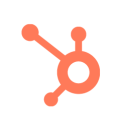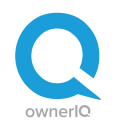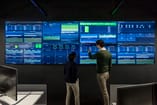
Women are still underrepresented in Massachusetts’ core tech jobs, which are some of the highest-paying jobs in the state.
A report by the Massachusetts Technology Leadership Council found that women hold little more than a quarter of jobs with titles like “software programmer” and “cybersecurity analyst,” while men still hold the lion’s share of these positions.
And yet, many women are fighting to change the male-dominated field and find success in an industry known for its glass ceiling and pervasive bro culture.
We caught up with six female software engineers from some of Boston’s hottest tech companies to talk about how they first broke into the industry and what they would do to change the status quo.

ezCater is a nationwide marketplace for business catering that connects companies to local catering companies.
Responses via Kristen Kehlenbeck, software engineer at ezCater
When did you learn to code?
I began learning to code about four years ago. After college, I worked in Client Services and QA at a couple Boston tech companies and became interested in web development while collaborating daily with engineers. I attended workshops and meetups and took online tutorials, which was a great start, but in 2015 I enrolled in General Assembly's Web Development Immersive program so I could really dive in.
What are some of the most interesting projects you've worked on, both in and outside of your company?
In my two months so far at ezCater, I’ve already been able to work on some really interesting, big impact initiatives, like building out a new product for user acquisition – I've also learned React, which has been fun! At a previous company, I built and maintained integrations with marketing automation tools like HubSpot and Marketo, which allowed me to contribute some new Ruby gems and PHP packages to the open source community.
What do you think needs to be fixed in order for more women to get into the field of technology?
I think exposure to programming from an early age is key to leveling the playing field for women in tech. Since technology wasn’t a big part of my education and I didn't know anyone in the field, I didn’t consider web development as a career option until after graduating college. When learning to code as an adult, especially as a woman, it's easy to feel intimidated when it seems you're the only one who hasn't been doing this forever.
Any advice for women interested in pursuing a career in tech?
There are so many resources out there and it’s easy to get bogged down in the details of what language to learn or which book to read and what order to do everything in. Just pick one! It gets easier as time goes on to figure out how you learn best or what language you’re most interested in continuing with, but you have to start somewhere!

Responses via Hillary Bauer, software engineer at ezCater
When did you learn to code?
I taught myself to code on the job about two years ago.
What are some of the most interesting projects you've worked on, both in and outside of your company?
I'm working on a project right now that would help connect addicts in crisis with emergency care. So many of the problems facing the recovery community right now are begging for a tech solution, but they don't have the resources to build them.
What do you think needs to be fixed in order for more women to get into the field of technology?
We need more women in leadership positions. Women don't have role models showing them a clear path to where their careers can take them. It's discouraging to someone starting out in tech, and it makes it tough to get excited and to keep their ambitions high. The most important thing, though, is that we keep talking about it and pushing back against structural institutionalized sexism in tech. The thing about implicit bias is that if you're not actively fighting it, you're participating in it.
Any advice for women interested in pursuing a career in tech?
Just start playing around with things. If you're new to coding, the amount of information there is to learn is daunting; but once you start chipping away at it, the momentum keeps you going. Sometimes I still have a little bit of ”blank canvas syndrome” where I don't want to start working on a project until I've really thought through my idea. When that happens, I remind myself that I can't finish what I don't start and push myself to just dive in.

HubSpot is the world’s leading inbound marketing and sales platform with 19,000 customers worldwide and six global offices.
Responses via Talia Swartz, senior software engineer at HubSpot
When did you learn to code?
I didn’t really learn to code until my freshman year of college as a computer science major. I had a little bit of HTML experience from high school but aside from that I came in totally fresh. It was definitely a little intimidating at first in my CS classes — a lot of my classmates already had coding experience and some of them were pretty hardcore about it to say the least. But after my first programming course I knew this was something that I could excel at and really have a career in!
What are some of the most interesting projects you've worked on, both in and outside of your company?
Last year I got to build a graphics editor, sort of like Adobe Illustrator, here at HubSpot. The project was very experimental and ended up not going to customers but it was still super exciting to work on. I was building a lot of really cool and highly complex user interactions that we use and take for granted everyday — at one point, I was writing code that would allow you to rotate a shape and I ended up using some high school trigonometry. I knew that radians would come in handy someday.
What do you think needs to be fixed in order for more women to get into the field of technology?
Oh boy. This a tough one — there’s a lot things that need to be fixed. One thing that could make a difference is more widespread K-12 computer science education. Most kids are never exposed to CS in school so it can sound scary and unapproachable, and they would never think to consider it as a major in college. I didn’t even really understand what computer science was until my senior year of high school. Just like math or history it’s a subject that just about anyone can learn. If more kids learned to code at an earlier age and realized that CS isn’t just for geniuses (and particularly that isn’t just for your stereotypical nerdy dude) then I think there’d be more CS majors, more general interest in software engineering as a career, and more women along with that. This by no means will fix the entire problem — there are more specific things going on that discourage women from entering the field and create higher attrition rates than men.
Any advice for women interested in pursuing a career in tech?
Never be afraid to say “I don’t know” or “What’s that?” It’s in my nature to try and play it cool when I don’t know what someone is talking about. I’ve always been afraid that someone will think less of me if I admit that I don’t know some term or concept, especially as a woman in a male-dominated field. But the only way you’ll learn is if you ask! I have yet to meet someone in my career, particularly at HubSpot, that has ever been frustrated or condescending to me when I say “I don’t know” or “What’s that?” Don’t be afraid to admit what you don’t know!

Acquia works with more than 4,000 organizations such as Warner Music Group, Stanford University and Intuit to transform their digital businesses using Drupal.
Responses via Charu Agarwal, senior software engineer at Acquia
When did you learn to code?
I started coding in 7th grade, and the first programming language I got introduced to was LOGO which was great, because using LOGO, I can draw things. As I’m more of a visual person, it was fun for me. Later in 10th grade I was introduced to BASIC and played around with BASIC and Visual BASIC to build small things like games and applications. Then in undergrad, I was introduced to C, C++ and learned core concepts of computer science. This is when I started taking it more seriously. But I think programming is really fun and I’m happy to choose it as my profession, because work never feels like work. Every day brings new challenges, as these days, technology gets outdated very quickly; new languages, libraries, frameworks come and go. To keep yourself updated, you need to keep learning. So, learning to code is an ongoing process and I enjoy it.
What are some of the most interesting projects you've worked on, both in and outside of your company?
Since I started playing around with computers and building applications, I liked many projects. But to mention a few, at Acquia, I got the chance to work on a cloud-based content distribution and syndication product, which provides the user the ability to syndicate, access and reuse the content across web and other systems. I think that was an interesting project and a great learning experience. Outside Acquia, the thing that attracts me is e-commerce. I’ve designed and built many ecommerce sites and extensions using an ecommerce platform — to me, building these online stores is more fun than going shopping.
What do you think needs to be fixed in order for more women to get into the field of technology?
In my opinion, the only way we can change this industry is by encouraging more girls and women to choose tech as their career. I’ve read many articles saying it’s a male-dominant industry — how can women fit in it? But I think the tech industry has a lot of good qualities that make it a great place for women. Unlike any other industry, the tech industry provides work-life balance and flexibility to work from anywhere at your own schedule. I think the one thing that we can change is to change ourselves and our mindset. Women have to make themselves so technically strong that no one can replace them. If you are strong in your skills and if you have confidence, nobody can take your place. I know it will be hard at first, but slowly and gradually, it will definitely change. But to bring the change, women need to come forward and take initiative to build their career in this field.
Any advice for women interested in pursuing a career in tech?
From my experience and learning, the key things that helped me and might help you in your career would be the following: Believe in yourself, focus and keep learning. The tech industry is full of super smart people, and it’s so easy to get intimidated by them. But the key is to believe in yourself and give your best. And don’t be afraid to ask questions, as that’s another way of learning. There’s always something new on the horizon. It opens up large amounts of opportunities to pursue your career in core programing, designing, managing, etc. To succeed, you need to focus on one that excites you and you love to do. Learn the core computer science skills first, and them jump to building up high level skills. Love what you do.

Pegasystems is a software company that offers applications to streamline critical business operations, connect enterprises to their customers in real-time across channels and adapt to meet rapidly changing requirements.
Responses via Emily Bateman, principal software engineer at Pegasystems
When did you learn to code?
I started coding when I was in elementary school creating graphics and simple games using Basic on an Apple II+.
What are some of the most interesting projects you've worked on, both in and outside of your company?
It is always most interesting working on projects that people outside of the software industry can relate to. Throughout my career, I’ve seen the evolution of technology and how it directly impacts my day-to-day tasks. One of my first jobs out of school was developing a voicemail platform and application for telecommunications providers. As messaging evolved towards text, multimedia and IP-based messaging, in order to keep up with customer demands, I had to learn these new technologies and incorporate solutions using these technologies into the products offered by the company.
What do you think needs to be fixed in order for more women to get into the field of technology?
Young girls need to be exposed to problem solving at an early age. We need more teachers and other role models who are able to get girls excited about technology and demonstrate the connection between this technology and the tools they use every day. I have a 10-year-old daughter, so I have first-hand experiences with these challenges.
Any advice for women interested in pursuing a career in tech?
Find your passion and stick with it.

Adtech company ownerIQ helps retailers, brands and marketers view and access data to make critical business decisions.
Responses via Fanying Ye, software engineer at ownerIQ
When did you learn to code?
I learned to code in my sophomore year of college.
What are some of the most interesting projects you've worked on, both in and outside of your company?
Inside the company, the most interesting project I’ve worked on is our data marketplace, which is our platform connecting all of our data partners to run more efficient digital advertising in the form of second-party data campaigns. On our platform, partners can establish relationships with other partners and target each other's website audiences. In that project, I not only built front-end UI pages, but also built back-end schema designs and services to deal with these various kinds of marketing partnerships.
What do you think needs to be fixed in order for more women to get into the field of technology?
Since the number of women in technology is small, I feel that the external female support organizations are important and make us feel less isolated.
Any advice for women interested in pursuing a career in tech?
Be confident. The truth is that human intelligence and the ability to work only varies among individuals, not genders. There is no gender distinction. We must convince ourselves that we can do the same as men and even better.
Responses have been edited for length and clarity.










